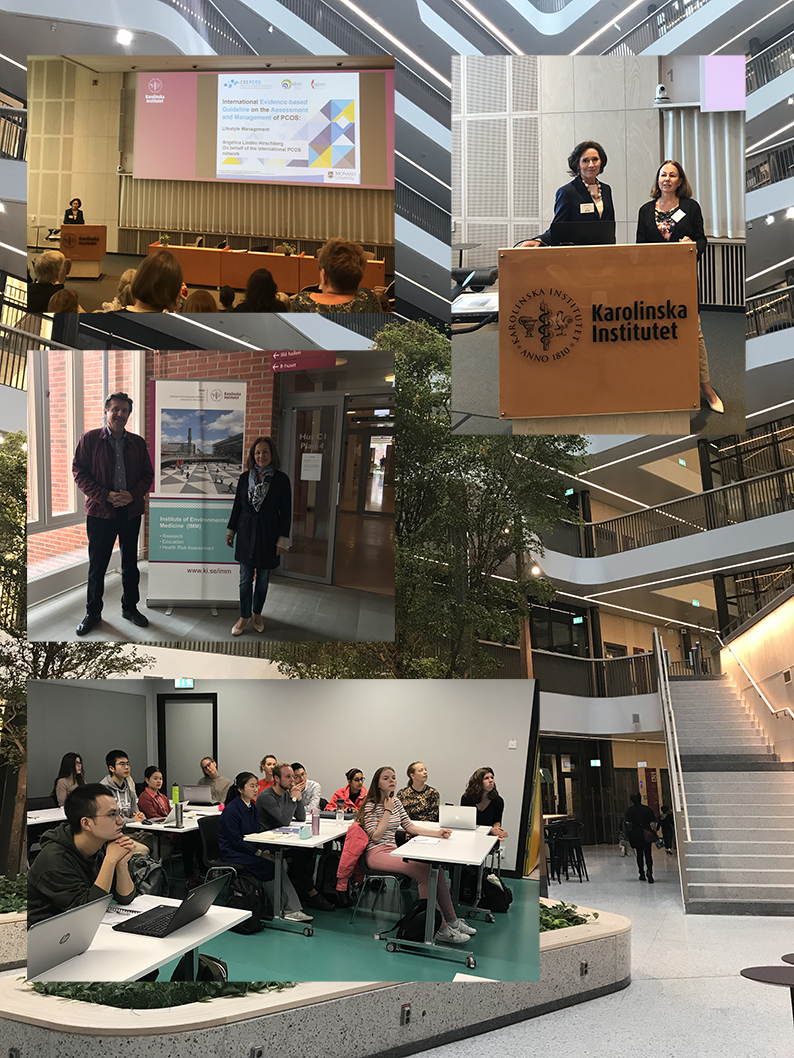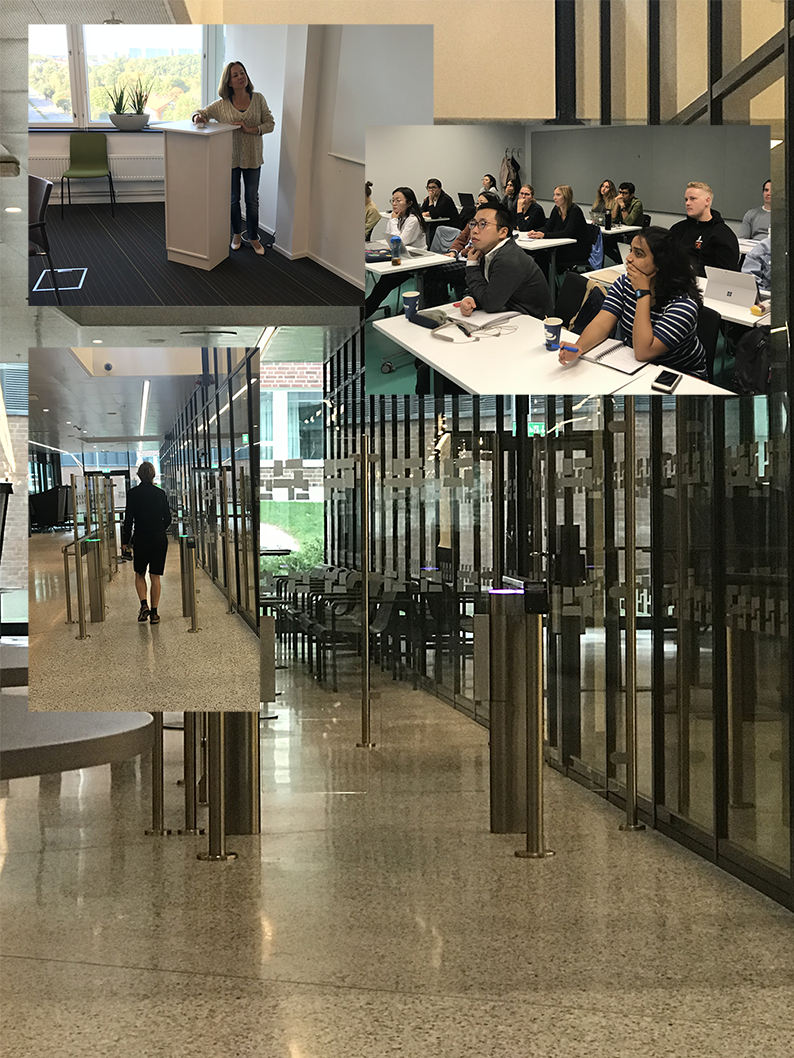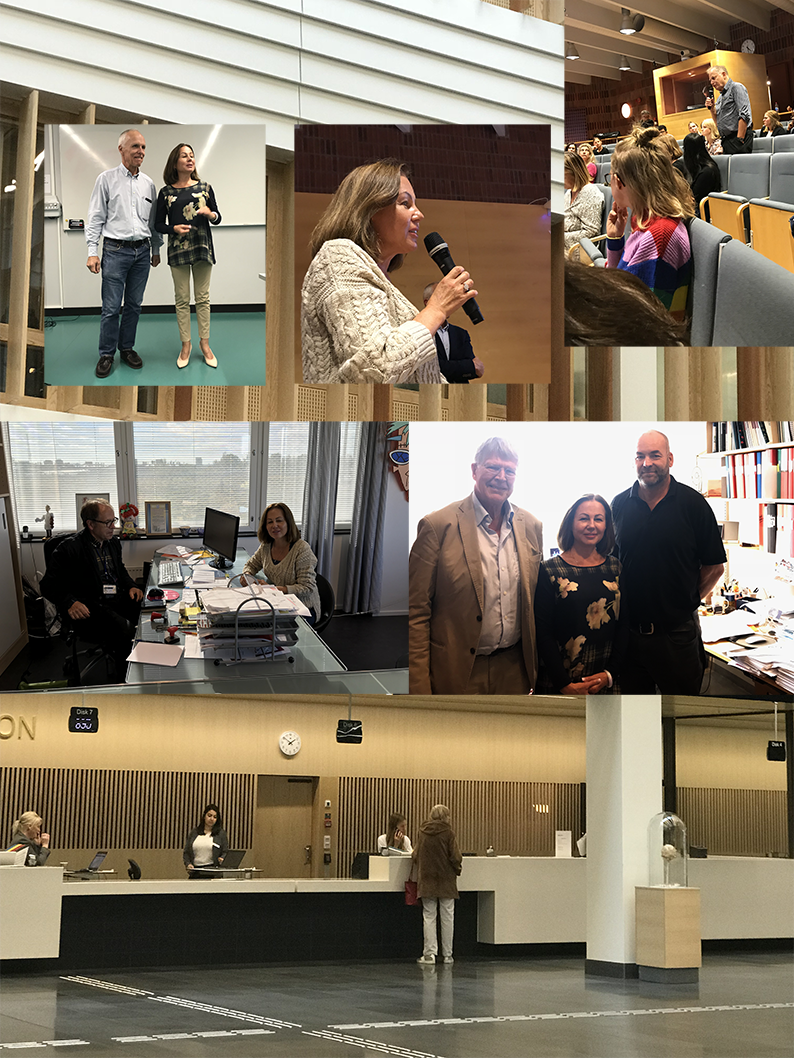The visit to the Kingdom of Sweden by the Vice-Rector for International Relations and International Students Research and Training, Full Professor Olesya Hulchiy has not finished yet, but it has already produced a number of significant results.
There have been held negotiations with the President of the Organisation for PhD Education in Biomedicine and Health Sciences in the European System (ORPHEUS), Full Professor Robert Harris, representatives of the Department of Public Health and the Institute of Environmental Medicine of the Karolinska Institute, the Uppsala University, etc.
Full Professor Olesya Hulchiy took part in the conference on population study of evidence-based endocrine care and the effect on lifestyle, public lecture on the politics of public health in Sweden; she also shared her experience with students at the lecture which was held at the Department of Public Health of the Karolinska Institute.
As a result, the foundation for further training program has been laid (in November our Swedish colleagues will visit NMAPE again). The next steps for the development of programs in public health and rehabilitation medicine are planned.
Cooperation between Ukrainian universities and the Karolinska Institute began in 2007 managed by Full Professor Tommy Linne and Full Professor Olesya Hulchiy. At present NMAPE has a dynamic program of scientific and practical cooperation with the Karolinska Institute and the Uppsala University. Starting in 2016, Swedish scholars regularly hold trainings for the Academy’s students, the materials of which are further used in the educational process (for example, Petter Hellstrom’s lecture “How to Write and Publish a Scientific Paper” (https://youtu.be/DzNt3UdwI3c)).
According to Full Professor Tommy Linne, human relations formed between scientists from different countries during the implementation of joint projects help expand the network of partners and get the financing, achieve outstanding results and lay a solid foundation for the future. The experience of cooperation between the Ukrainian medical education institutions and the Karolinska Institute is the best illustration of this statement: “It is possible to conclude cooperation agreements with several institutions or with their separate units. The efficiency of cooperation does not depend on the number of partners” (Read more at https://issuu.com/vzkievua/docs/vz_39-40_2016/10).






